
Latest Coronavirus Disease COVID 19 News and Research
Nurses and doctors sick with COVID feel pressured to get back to work
The first call in early April was from the testing center, informing the nurse she was positive for COVID-19 and should quarantine for two weeks.
Bereaved families are ‘the secondary victims of COVID-19’
Every day, the nation is reminded of COVID-19's ongoing impact as new death counts are published. What is not well documented is the toll on family members.
C-type lectin receptors play a role in SARS-CoV-2 infection
A new study published on the preprint server bioRxiv in August 2020 confirms and extends earlier findings showing that a type of sugar-based receptor on innate immune cells promotes the entry of the severe acute respiratory syndrome coronavirus 2 (SARS-CoV-2) into other cells that carry the viral receptor, angiotensin-converting enzyme 2 (ACE2).
Open access journal posts COVID-19 preprint studies to reduce misinformation
Today, open access journal Rapid Reviews: COVID-19 (RR:C19), published by the MIT Press, posted peer reviews of eight COVID-19 preprint studies in an effort to reduce misinformation and to elevate noteworthy and useful research for scientists, public health officials, journalists, and the public.
Research looks at convalescent plasma use in COVID-19 mouse model
A new study by researchers at the University of Iowa and published on the preprint server bioRxiv in August 2020 reports the utility of a mouse model that recapitulates several aspects of human COVID-19 and can reflect the antiviral efficacy of new drugs as well.
SARS-CoV-2 a "swarm" of mutant viruses
In this new study, the virus was serially passaged in independent cell types in a controlled environment. The researchers found that the virus rapidly adapts to the changing conditions in culture by selecting for pre-existing species.
Study highlights need to understand different environmental conditions that affect surface chemistry of SARS-CoV-2
Researchers at Michigan Tech, TÜV SÜD UK National Engineering Laboratory and University of Edinburgh call for increased research on virus surface stability and interaction in "Surface Chemistry Can Unlock Drivers of Surface Stability of SARS-CoV-2 in Variety of Environmental Conditions" in the Cell Press journal Chem.
Can SARS-CoV-2 be transmitted via feces?
A new study by researchers at the University of Oxford and the Trip Medical Database and published on the preprint server medRxiv* in August 2020 as part of the ongoing Open Evidence Review on Transmission Dynamics of COVID-19 reports the presence of severe acute respiratory syndrome coronavirus 2 (SARS-CoV-2) in feces and the need for precautions to prevent orofecal spread in the surroundings of confirmed or suspected cases.
Smoking and vaping significantly increase risk of COVID-19 in teens and young adults
Now, a new study published in the Journal of Adolescent Health shows that teens and young adults may have a heightened risk of COVID-19 if they vape or smoke cigarettes. Cigarette smokers are seven times more likely to be infected with SARS-CoV-2. Meanwhile, people who vape are five times more likely to be diagnosed with the viral infection.
Scientist explains why COVID-19 targets only some organs while others are spared
The severe acute respiratory syndrome coronavirus 2 (SARS-CoV-2) uses the enzyme angiotensin-converting enzyme 2 (ACE2) to enter and infect human cells. It causes COVID-19 and can lead to a multitude of complications, including multi-organ impairment, partially due to the abundant expression of ACE2 in all human tissues.
Focusing on human enzymes and not SARS-CoV-2 could help treat COVID-19
Now, breakthrough research into malaria suggests targeting enzymes from the human host, rather than from the pathogen itself. The new research could pave the way for effective treatments for a wide range of infectious diseases, including the coronavirus disease (COVID-19).
Researchers uncover a new vulnerability in the novel coronavirus' infamous spike protein
Northwestern University researchers have uncovered a new vulnerability in the novel coronavirus' infamous spike protein -- illuminating a relatively simple, potential treatment pathway.
Alcohol consumption rises in Australia as COVID pandemic continues
A new survey from the Alcohol and Drug Foundation has found that 12 percent of Australians have begun consuming alcohol on a daily basis since the coronavirus pandemic began a few months back. The survey showed that many Australians who did not drink regularly before have picked up the habit.
Natural compund in cedar and grapefruit skin could help repel mosquitoes and ticks says CDC
Over the last few years, there has been a rise in the number of cases of diseases caused by mosquito and tick bites. The U.S. Centers for Disease Control and Prevention (CDC) has said that a natural chemical compound could help combat this problem. This compound Nootkatone is found commonly in cedar trees, and grapefruit skin says the organization.
People of color, minority groups are underrepresented in COVID-19 clinical trials
Despite disproportionately higher rates of COVID-19 infection, hospitalization and death among people of color, minority groups are significantly underrepresented in COVID-19 clinical trials, according to a new perspective authored by faculty from the University of Georgia and University of Colorado and pharmacists from Phoebe Putney Memorial Hospital in Albany.
1st human data for Sinovac's SARS-CoV-2 CoronaVac vaccine is out
A group of Chinese researchers recently conducted a phase 2 clinical trial to further evaluate the immunogenicity and safety of SARS-CoV-2 inactivated vaccine known as CoronaVac. The results are currently available on the medRxiv preprint server and demonstrate that the vaccine is well tolerated and without any notable dose-related safety concerns, which opens the door for phase 3 clinical trial.
Inhaled delivery of a potent neutralizing nanobody effective against SARS-CoV-2
A recent study by researchers from China, available on the bioRxiv preprint server, shows how stable neutralizing nanobody Nb11-59 might be a promising prophylactic and therapeutic molecule against coronavirus disease (COVID-19) – especially if administered via the inhalatory route.
Stanford study reveals immunological deviations and lapses in severe COVID-19 cases
Some people get really sick from COVID-19, and others don't. Nobody knows why.
Public health officials are quitting or getting fired in throes of pandemic
Vilified, threatened with violence or in some cases suffering from burnout, dozens of state and local public health officials around the U.S. have resigned or have been fired amid the coronavirus outbreak, a testament to how politically combustible masks, lockdowns and infection data have become.
Study shows how African health services are handling disruptions caused by COVID-19
In our first episode, presenter Selly Amutabi brings you stories about how health services have been coping with disruptions caused by efforts to contain the COVID-19 outbreak.

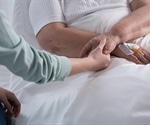
_13108a69a2684411b910a4d8a388c718-150x125.jpg)
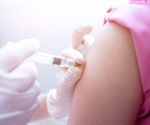
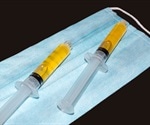
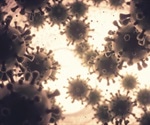
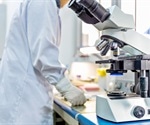
_a872d7730ac7437fbe5a155eee5b18d9-150x125.jpg)

_1878d13be2ba43d1911be0b3dc679147-150x125.jpg)
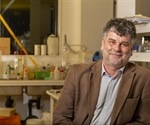
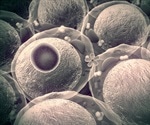
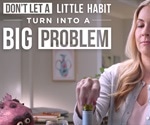


_a3f42f540aed455c9738e0aa4b52aac3-150x125.jpg)
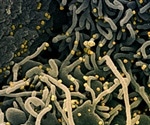
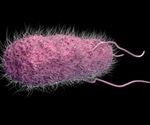
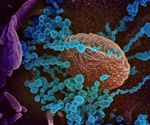
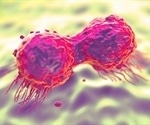
































No hay comentarios:
Publicar un comentario